If you’re working with electrical wiring, then you’ll need to know about conduits. Electrical conduits are necessary for protecting and organizing wires, and they come in a variety of shapes and sizes. In this comprehensive guide, we’ll answer some of the most common questions about electrical conduits. We’ll provide tips on how to choose the right conduit for your needs, and we’ll also discuss installation and maintenance. So whether you’re a professional electrician or a DIY homeowner, read on for all the information you need to know about electrical conduits!
What is an Electrical Conduit
It is usually made of metal or plastic, and can be rigid or flexible (e.g. PVC-coated steel). Electrical conduits are used to provide a safe passage for the wires that connect power sources such as service panels, outlets, switches and other fixtures to each other. In addition to providing protection for the wires themselves, conduits also help prevent accidental contact with hot wires which could cause electric shocks or short circuits. They also keep dust, moisture and rodents away from live electrical components inside the conduit. Conduits come in a variety of sizes and shapes; some are designed specifically for underground use while others are designed for surface mount applications. Common types of conduits include EMT (electrical metallic tubing), IMC (intermediate metal conduit) and PVC (polyvinyl chloride).
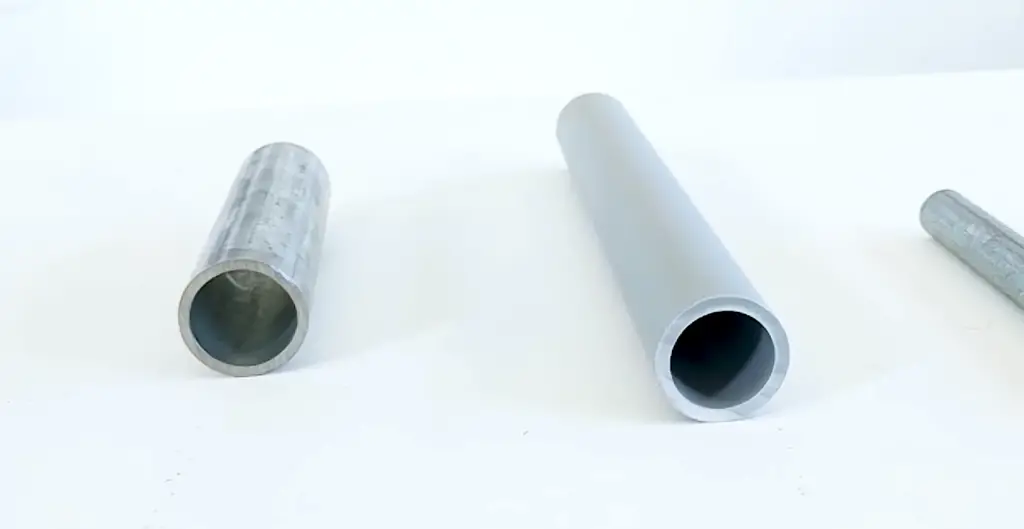
When installing electrical wiring in a building, it is important to use the correct type of conduit in order to ensure safety and compliance with local codes. For instance, metal conduit must be used in wet areas such as bathrooms, while non-metallic conduit can be used in dry areas. In addition, certain materials such as PVC must not be used near high voltage lines or equipment due to their flammable nature. Before starting any installation project it is important to consult a qualified electrician who can advise on the best type of conduit to use for the job.
In addition to providing a safe environment for electric wiring, electrical conduits also offer several other benefits. For instance, they can be used to organize and protect cables from damage and corrosion. They also help to reduce noise levels by acting as an acoustic barrier between electric wires and other components in the building. Finally, conduits can provide improved fire safety as they are made from materials that won’t burn when exposed to extreme temperatures. [1], [2], [3]
How does Electrical Conduit Work?
Electrical conduit works by providing a safe and secure passage for electrical wiring inside buildings. When correctly installed, it helps to ensure that wires remain away from any potential sources of harm such as dust, moisture and rodents. Conduits also keep electrical components within them away from accidental contact with hot wires which could cause electric shocks or short circuits.
The type of conduit used will depend on the environment in which it is being installed. Rigid metal conduits are most commonly used in wet areas such as bathrooms and kitchens, while flexible non-metallic conduits can generally be used in dry areas. Certain types of materials including PVC must not be used near high voltage lines or equipment due to their flammable nature. Before starting any installation project it is important to consult a qualified electrician who can advise on the best type of conduit to use for the job.
Once conduit has been correctly installed and wired, it will provide an enclosed pathway for electrical wiring which provides protection from potential dangers such as dust, moisture and rodents. In addition, it also helps to reduce noise levels by acting as an acoustic barrier between electric wires and other components in the building. Finally, conduits can provide improved fire safety as they are made from materials that won’t burn when exposed to extreme temperatures. [1], [2], [3]
Types of Electrical Conduits
As you may know by now, electrical conduits come in a variety of sizes and shapes. Common types of conduits include EMT (electrical metallic tubing), IMC (intermediate metal conduit) and PVC (polyvinyl chloride). In this section we will discuss each one in detail.
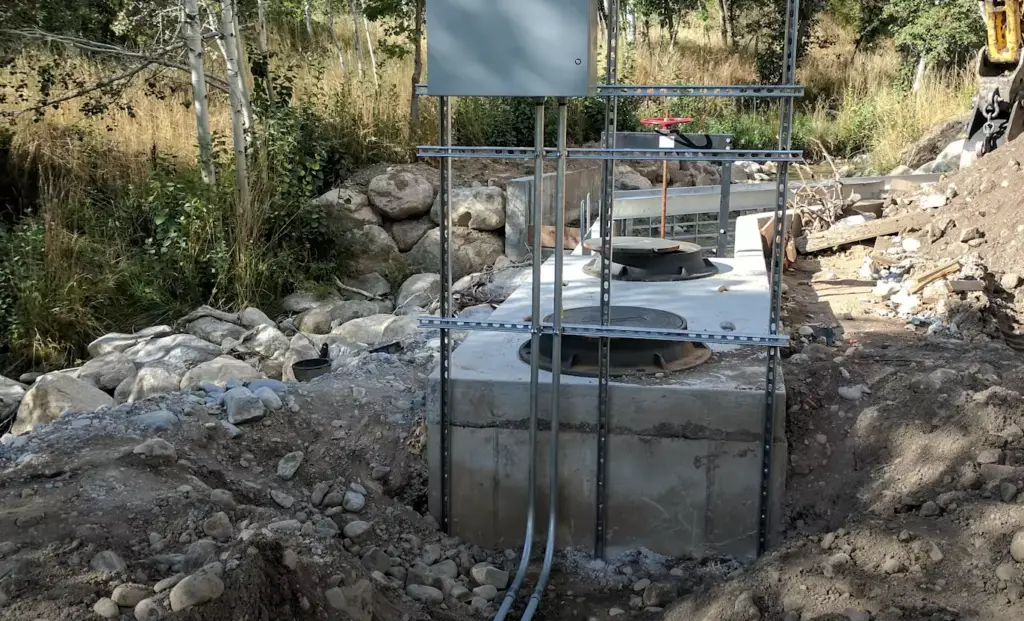
Electrical metallic tubing conduit
EMT conduit is made of galvanized steel with an interior and exterior coating to protect against corrosion. The interior is usually lined with plastic or rubber insulation material to reduce heat transfer and provide additional protection from contact with live wires.
EMT conduit offers several advantages over other types of rigid piping systems such as PVC or ABS, including greater strength, easier installation and reduced cost. While it’s more durable than other types, it’s not recommended to install one underground due to its metal composition.
Rigid metal conduit
It is used to protect electrical wiring and cables in exposed or potentially hazardous areas, such as walls and ceilings. RMC is also used when running wiring through extremely high temperatures.
Compared to other forms of electrical conduit, RMC is strong and durable. It can be used in a variety of applications, including for commercial buildings, industrial sites, underground installations, hazardous locations, and more. Additionally, it comes with various connection options to make installation easier.
Intermediate metal conduit
It is considered to be an economical alternative to the traditional rigid metal conduit, which requires more labor and material costs for installation. IMC provides mechanical protection for cables and wires, as well as corrosion resistance. It has an internal diameter that varies from 1/2″ up to 6″.
IMC is ideal for use in commercial applications such as industrial buildings, schools, healthcare facilities, or high-rise apartment complexes. Its lightweight construction makes it easier to handle than other types of conduit systems, while its durable design helps protect against corrosive elements in wet environments. Additionally, IMC can be used with special fittings or connectors for increased flexibility.
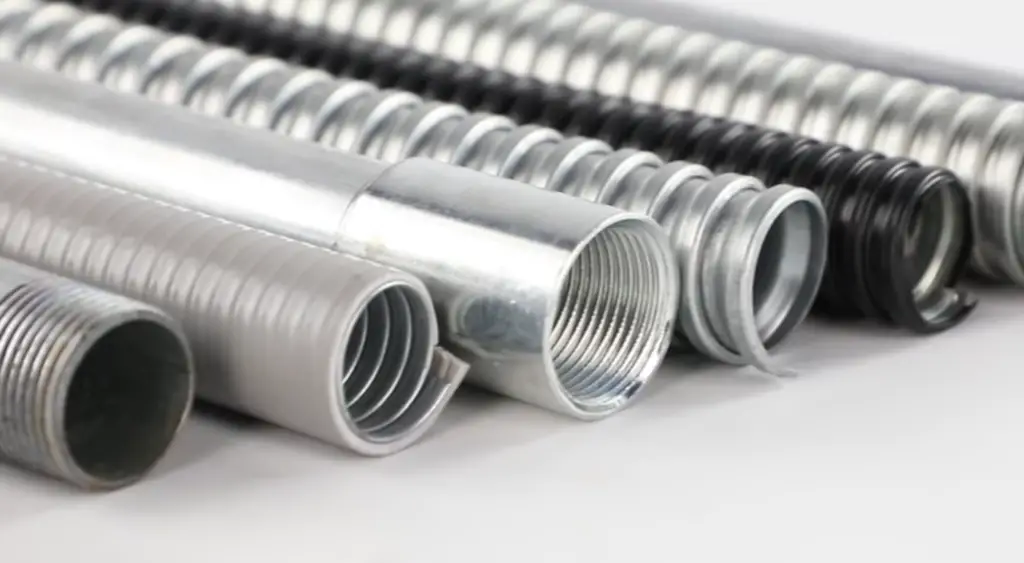
Flexible metal conduit
Flexible metal conduit, also known as FMC, is a type of electrical conduit made from helically wound metal strips with an extra coating for corrosion protection. It has many advantages over traditional rigid steel or plastic conduits and is the preferred choice when needing to run wires through tight spaces and around corners.
FMC can be bent easily by hand or with special tools. This makes it ideal for running wires in difficult-to-reach places such as walls, floors, ceilings, attics and crawl spaces. The flexible material allows it to move with the structure while keeping a secure connection between sections of wiring. This helps ensure that no wires become loose or disconnected during construction or renovation projects.
The flexibility of FMC makes it the best choice for areas prone to earthquakes or other seismic activity. Unlike rigid conduits, it does not crack, break or fail when subjected to vibration and movement. This makes it an ideal conduit for wiring in regions where earthquakes are common.
Liquid-tight flexible metal conduit
It consists of a flexible metal tube that is wrapped with an insulating cover to protect it from moisture, dust, and other environmental factors. The flexibility of LFMC makes it easier to install than traditional rigid piping systems, allowing for more complex layouts and tight bends without needing special tools or fittings. Additionally, the insulation protects wires within the conduit against heat and abrasion. LFMC can be applied in wet or dry locations, making it suitable for both indoor and outdoor installations.
When properly installed, LFMC provides superior protection from physical damage as well as from water infiltration. In addition to its flexibility, the metal tube provides improved strength and rigidity compared to other types of conduit. For example, PVC conduit is not as strong or durable as LFMC, making it more susceptible to cracking and breakage when exposed to extreme temperatures or physical impacts.
Electrical non-metallic tubing
This type of conduit is the most commonly used for running wiring, as it does not contain any metal components that could potentially interfere with the flow of electricity. ENT typically consists of several component pieces to make up a complete system. These components include PVC pipe, support straps, fittings, and couplings. Each component has its own specific purpose within the ENT system.
One of the main downsides to using electrical non-metallic tubing, as opposed to other types of conduit, is that it can’t be installed in exposed locations. This means that if the pipe is installed in a basement or crawlspace, it must be encased in drywall or other approved material for protection from moisture and physical damage. Additionally, ENT can’t be used outdoors, as it isn’t rated for outdoor use.
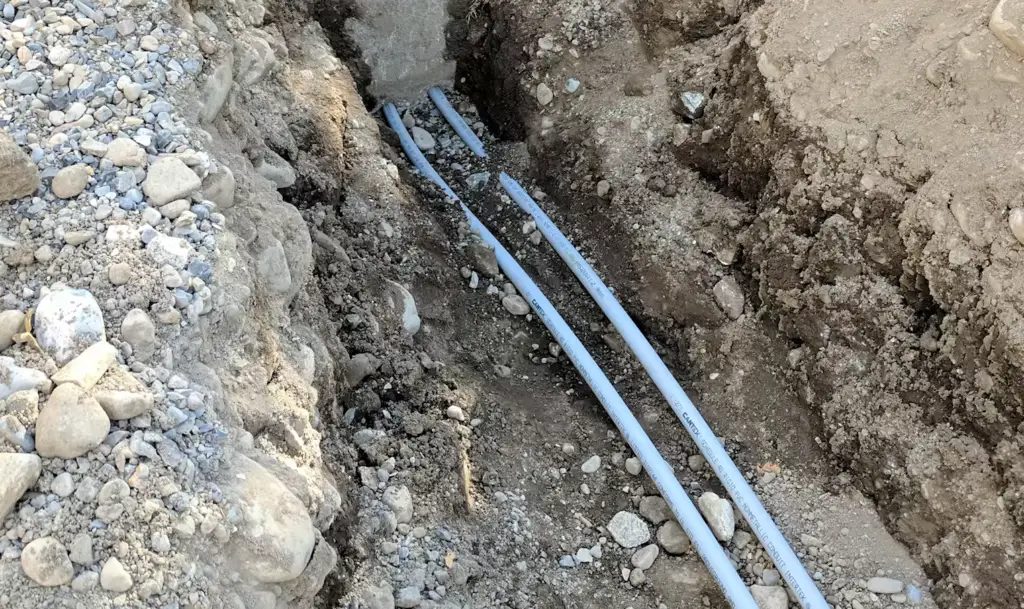
PVC conduit
PVC conduit is a rigid tube made of polyvinyl chloride (PVC) material, and it’s the most popular type of electrical conduit. PVC has many advantages that make it ideal for use in electrical systems. It is resistant to corrosion, lightweight, and relatively inexpensive compared to other materials typically used for wiring applications. PVC conduit also comes in a variety of sizes and configurations, so you can find the right option for your project.
When installing PVC conduit, you may need additional components such as couplings or fittings to join pieces together or connect them to other parts of an electrical system. In addition, you’ll need specialized tools like pipe cutters and reamers when working with PVC pipe. You should always follow safety procedures when working with electricity, including wearing protective gear like gloves and eye protection.
In addition to its flexibility and affordability, PVC conduit’s non-metallic construction makes it a good choice for areas where corrosion may be an issue. Its plastic nature also reduces the risk of shock or injury if exposed due to accidental damage or digging. [1], [3]
Advantages of Electrical Conduit
Electrical conduit offers a number of advantages over other types of wiring systems. As a result, it is the preferred choice for many commercial and industrial applications. Let’s discuss some of the benefits of using electrical conduit in detail:
They offer waterproof protection
Electrical conduit is designed to provide waterproof protection for the wires contained within it. This can be particularly beneficial in outdoor environments where water exposure is common. For example, direct burial conduit can provide an extra level of protection from moisture compared to other wiring systems. Additionally, plastic conduits are made with a heavy-duty PVC coating that helps keep out water and dust particles.
This makes it ideal for use in exposed locations that are susceptible to these influences, such as outdoor areas or damp basements. Additionally, the metal components provide added rigidity and strength compared to other materials used in wiring systems.
Most of the electrical conduits are resistant to corrosion
Electrical conduit is also resistant to corrosion, making it a great choice for wiring systems in coastal areas or other environments with high levels of humidity. This is because the material used to manufacture most electrical conduits is galvanized steel or aluminum, both of which are highly corrosion-resistant metals. Additionally, many plastic conduits are designed with an anti-corrosion agent that further prevents damage from moisture and dust over time.
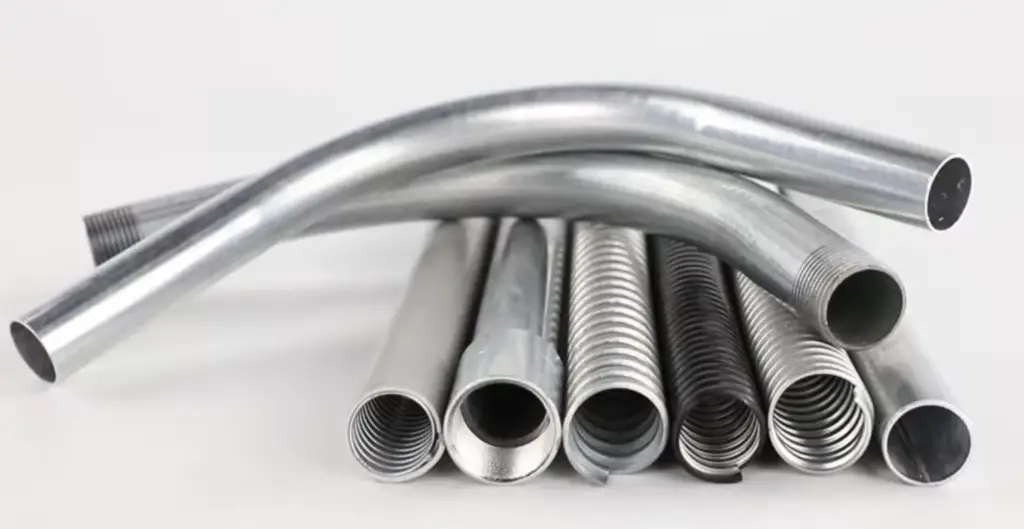
They are easy to maintain
Electrical conduit is also easy to maintain, as it requires very little in the way of maintenance. For example, unlike some wiring systems that require frequent inspections and cleaning, electrical conduit does not need to be inspected or cleaned routinely. Additionally, since most conduits are made from prefabricated pieces, replacing or repairing them is relatively straightforward.
And if they ever get damaged, it’s very easy to replace the entire conduit with a single piece, as opposed to having to replace individual components of other wiring systems.
Fireproof
Electrical conduits are also fireproof, making it an ideal choice for applications where flammability is a concern. This is because the material used to make most conduits is designed to prevent sparks and heat from escaping in the event of a fire. Additionally, PVC-coated conduits are made with a flame-retardant coating that helps protect against fires from outside sources.
Very consistent
Electrical conduits are very consistent in terms of their performance and reliability. This is because they are made from uniform pieces that fit together properly, providing a reliable connection between the wires contained inside them. Additionally, since most conduits are factory-made, it means that you can be sure of the quality and performance of each piece.
All of these benefits make electrical conduit an ideal choice for many different wiring systems. From commercial to industrial applications, it provides waterproof protection, corrosion resistance and ease of maintenance that makes it far superior to other wiring systems available on the market today. If you’re looking for a reliable wiring system for your needs, electrical conduit may be just what you need!
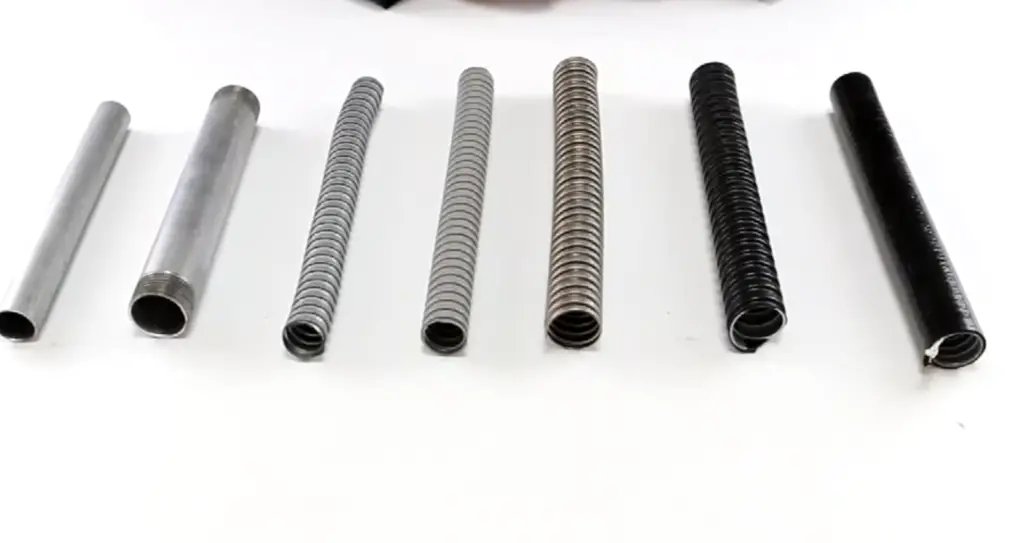
They protect from electrical shock
Finally, electrical conduit can help protect people from electrical shock. This is because the metal conduits act as a barrier between live wires and the outside environment. Additionally, many plastic conduit systems are designed with an inner core that helps provide extra insulation against electric shock. In this way, using conduit can help ensure the safety of personnel working around electrical wiring systems. [1]
Disadvantages of Electrical Conduit
Despite its many advantages, electrical conduit also has a few drawbacks. It’s important to be aware of these before making a decision about which wiring system to use.
Hard to install
One of the main disadvantages of electrical conduit is that it can be difficult to install. This is because the components must fit together securely in order to ensure safe wiring, which requires a high level of skill and expertise. Additionally, due to its weight, installing conduit may require mechanical assistance or special tools.
Expensive
Another downside of electrical conduit is that it can be expensive. This is due to the cost of the materials used, as well as the labor involved in installing and maintaining it. Additionally, since most conduits are pre-fabricated, it may not be possible to customize the system to meet specific needs.
Certain conduits aren’t that durable
And we’re talking mainly about PVC-coated conduits here. While PVC-coated conduit is a great option for many applications, it can be susceptible to physical damage and extreme temperatures. As such, if you’re looking for a more durable electrical wiring system, then metal conduit may be a better choice.
Faults are difficult to find
Finally, faults in electrical conduits can be difficult to find. This is because the components are enclosed within a metal or plastic conduit, making it difficult to determine exactly where a fault may be occurring. Additionally, since the connecting pieces of an electrical conduit system all look alike, it can also make it tricky to pinpoint any problems that may arise. [1]
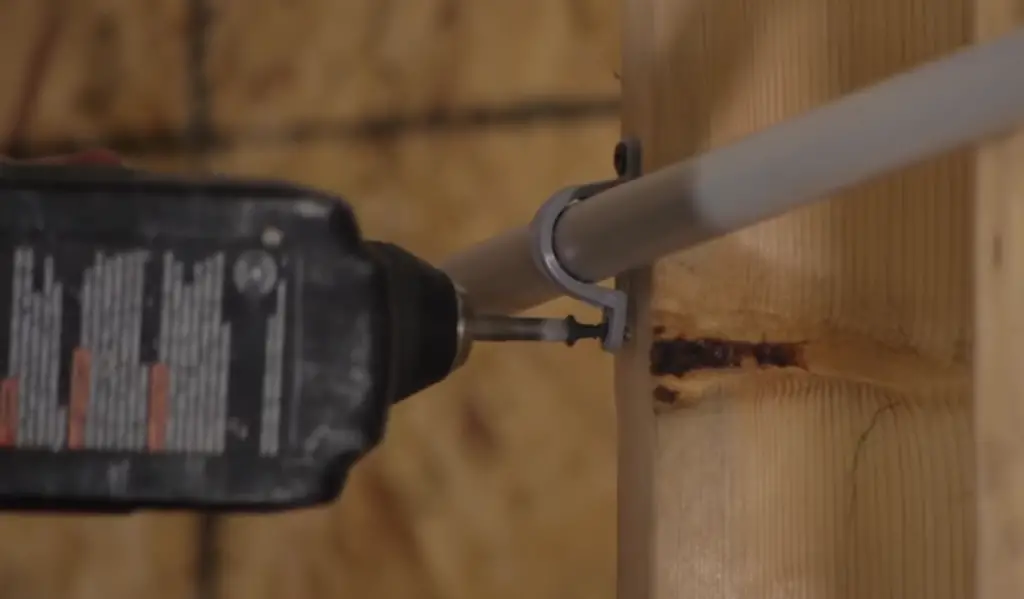
FAQ
Are electrical conduits waterproof?
Yes, electrical conduits are waterproof and offer protection against moisture, dust, and other corrosive materials. They help protect the wires that run through them from potential damage due to water and other elements. Electrical conduits are typically made of either metal or plastic with rubber gaskets designed to provide a waterproof seal. Metal electrical conduits may also be sealed using special compression fittings or by welding the conduit together at each joint. Plastic electrical conduits must also be sealed with a special glue or adhesive in order to ensure a tight seal.
What is an electrical conduit used for?
Electrical conduits are used primarily to protect and route electrical wiring in a home, commercial building, or other structure. Inside the conduit, wires can be connected to switches, outlets, and other devices as needed. Electrical conduits come in several different types which vary based on material and size. Common materials used for conduit include metal (such as aluminum or steel), plastic (such as PVC or ABS), and even fiberglass. Each type of conduit is designed with specific characteristics that make it suitable for certain applications.
Metal conduits are often preferred when running long lengths of wire, due to their durability and strength. They also provide excellent protection against electromagnetic interference (EMI). Plastic conduits offer cost-savings advantages but should only be used in non-hazardous areas due to their lower fire rating. Fiberglass conduit is best used where extreme heat or cold may be present, as it offers excellent insulation and can handle high temperatures.
What are the advantages and disadvantages of using an electrical conduit?
The primary advantage of using an electrical conduit is that it provides a safe path for electrical wiring. The metal or plastic piping used in the installation of an electrical conduit keeps the wiring insulated, preventing shock and short circuiting.
A second benefit of an electrical conduit is its ability to protect wires from damage due to physical contact. An electrical conduit also prevents water and dirt from entering the lines, protecting against corrosion and other damage caused by moisture or dirt accumulation. Additionally, since most types of conduits are visible, they make troubleshooting easier should something go wrong with the wiring.
The primary disadvantage of installing an electric conduit is that it can be expensive and time-consuming to install correctly. There may also be restrictions in some areas regarding the type of conduit that can be used based on local building codes. Additionally, a conduit may not provide enough space for all of the wires that need to be installed.
What are the two types of electrical conduit?
Rigid electrical conduit is made from metal or plastic materials such as PVC, EMT (electrical metallic tubing), and RMC (rigid metal conduit). This type of conduit provides a high level of protection for the wiring inside it and is most commonly used in commercial and industrial buildings. Flexible electrical conduit is usually made from non-metallic materials like Nylon or Polyethylene, which allow the wires to be bent around corners or curves more easily than with rigid conduits. This type of conduit is often used in residential settings.
Useful Video: Electrical Conduit: Types and Uses
Conclusion
Electrical conduits are an essential part of any electrical system. They provide a safe, secure route for wires and cables to travel from one area to another. Without conduits, the wiring would be exposed and vulnerable to damage. In addition, using conduit ensures that your wiring meets local codes and regulations. It also helps protect wiring against environmental factors such as moisture or dust.
In this article, we have provided a comprehensive guide on what an electrical conduit is and why it’s important. We have discussed the different types of conduits available, as well as their installation methods. With this information in hand, you can confidently choose the right conduit for your project and ensure that your wiring is safely and properly routed throughout your home or office.
For more information on how to select the right type of electrical conduit for your project, consult with a certified electrician or refer to our article on this topic. We hope you found this guide helpful in answering common questions about what is an electrical conduit!
If you’re looking for other resources related to electrical wiring and safety, we recommend visiting the National Electric Code website for more information. Thanks for reading and happy wiring!
DISCLAIMER: The content provided in this guide is designed as a reference tool only. It does not provide advice on how to install electrical conduits or other wiring systems, and it should not be used as a substitute for professional installation services. As always, contact your local licensed electrician for any wiring questions you may have. Safety first!
References
- https://www.elprocus.com/electrical-conduit/
- https://www.dfliq.net/blog/everything-you-must-know-about-electrical-conduits/
- https://championfiberglass.com/8-types-of-electrical-conduit-and-their-uses/




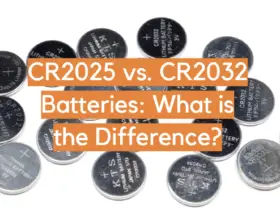
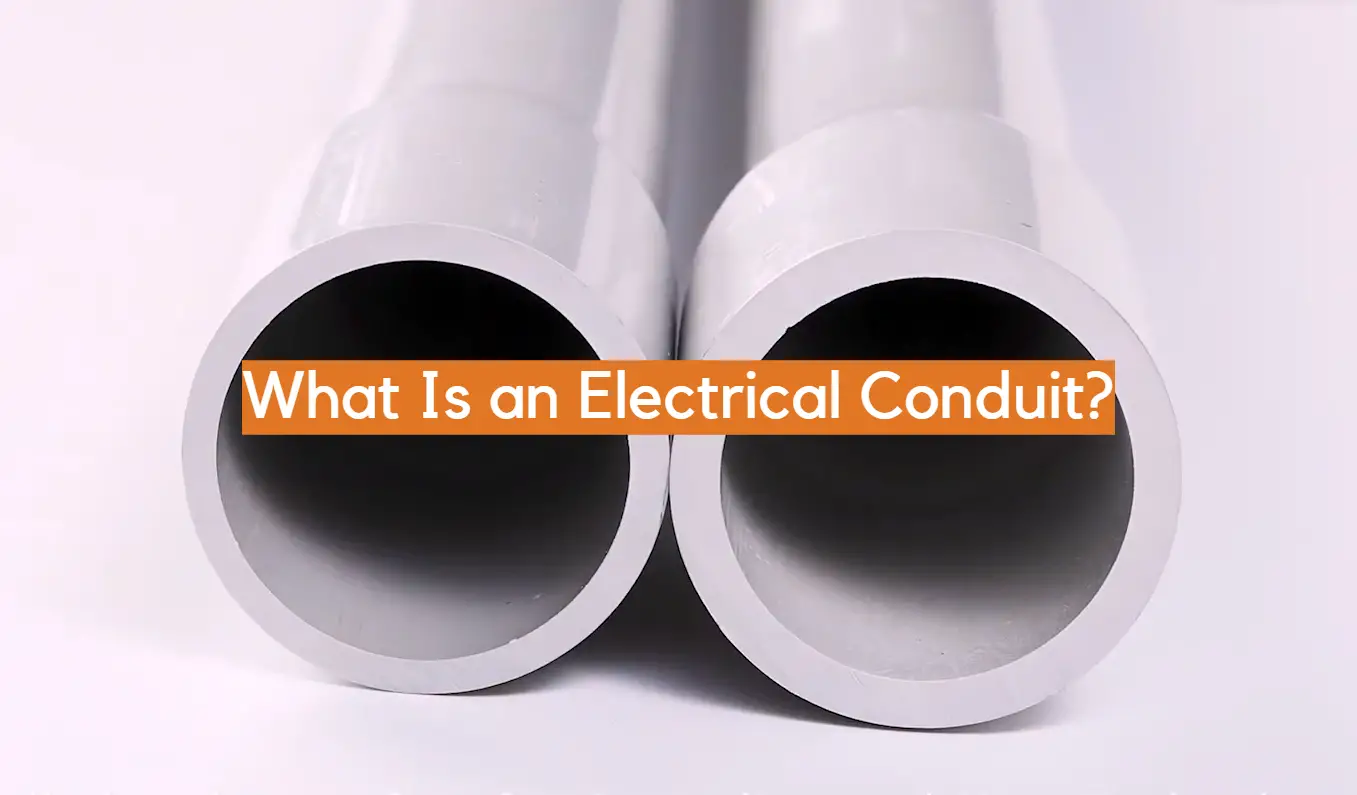








Leave a Reply